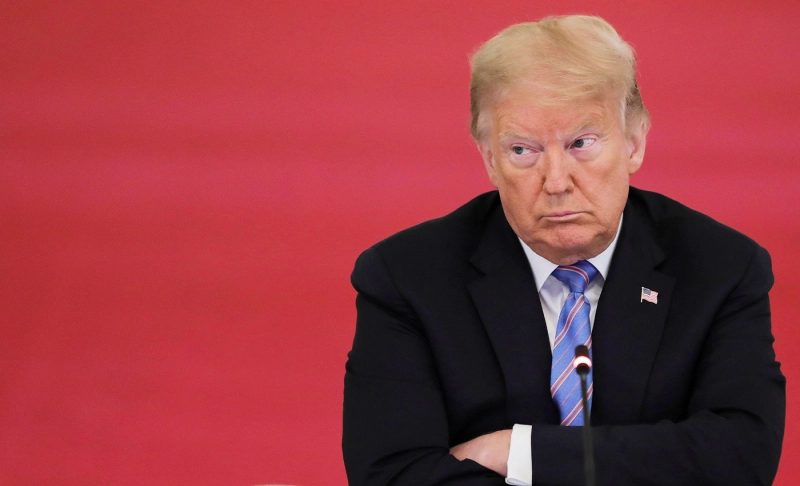By: Annie Priya
September 23 2020

Numerous reputable news agencies have independently confirmed the story, on the basis of anonymous sources
Numerous reputable news agencies have independently confirmed the story, on the basis of anonymous sourcesOn September 3, 2020, the Atlantic published an article stating that during a trip to France in 2018, Trump did not want to visit a cemetery where American military service members were buried during the commemoration of the 100th anniversary of the end of World War I. He reportedly felt the cemetery was, in his estimation, 'filled with losers,' and that the nearly 2,000 Marines buried there were 'suckers' for getting killed in a storied World War I battle. Atlantic also gave details about other incidents. It noted that Trump railed against lowering American flags after Sen. John McCain's death because McCain "was a fucking loser." During a Memorial Day visit in 2017 to the grave of then-Homeland Security Secretary John Kelly's son, who was killed in Afghanistan in 2010, Trump asked why anyone would volunteer to serve in the military. "I don't get it. What was in it for them?" he reportedly asked the fallen Marine's father. The Atlantic cites four unnamed people with firsthand knowledge of Trump's comments. The Washington Post, the New York Times, the Associated Press, and CNN have independently corroborated parts of The Atlantic's reporting. Associated Press reported that the story was confirmed to them by a senior Defense Department official with firsthand knowledge of events and a senior U.S. Marine Corps officer who was told about Trump's comments. In 2015, shortly after launching his presidential candidacy, Trump publicly blasted McCain, saying, "He's not a war hero", adding "I like people who weren't captured." Trump also publicly called McCain a "loser" in the context of his losing the 2008 presidential election. The Washington Post also reported that a former senior administration official, who, like others, spoke on the condition of anonymity confirmed to The Washington Post that the president frequently made disparaging comments about veterans and soldiers missing in action, referring to them at times as "losers." The New York Times reported that they contacted current and former officials to confirm the story. They could not confirm some of the specifics in The Atlantic's account. Still, they did verify that Trump resisted supporting an official funeral and lowering flags after the death of McCain. Moreover, people familiar with Trump's private conversations said he has long scorned those who served in Vietnam as being too dumb to have gotten out of it; Trump himself was granted a medical exemption for service in Vietnam, the legitimacy of which has been widely questioned. At other times, according to those familiar with the remarks, Mr. Trump has expressed bewilderment that people choose military service over making money. Some also recalled him asking why the United States should be so interested in finding captured soldiers. Another former official said Mr. Trump often expressed discomfort around people who had been injured. However, he has held events with wounded veterans. The NYT also reported that according to A Very Stable Genius by Philip Rucker and Carol Leonnig, during a meeting at the Pentagon in 2017, Trump berated top generals and said he wouldn't go to war with them. He also told them, "You're a bunch of dopes and babies." CNN also reported that a former senior administration official confirmed to them that Trump referred to fallen US service members at the Aisne-Marne cemetery in crude and derogatory terms during a November 2018 trip to France. The official largely confirmed reporting from Jeffrey Goldberg in the Atlantic. Responding to the story, Trump repeatedly denied that he made the remarks on the day the article was published. He also rallied current and former aides who backed him up on the record. He called the story fake and a disgrace. However, based on Trump's past remarks and independent verifications carried out by reputable news outlets, we conclude that it is far more likely than not that the story is true.